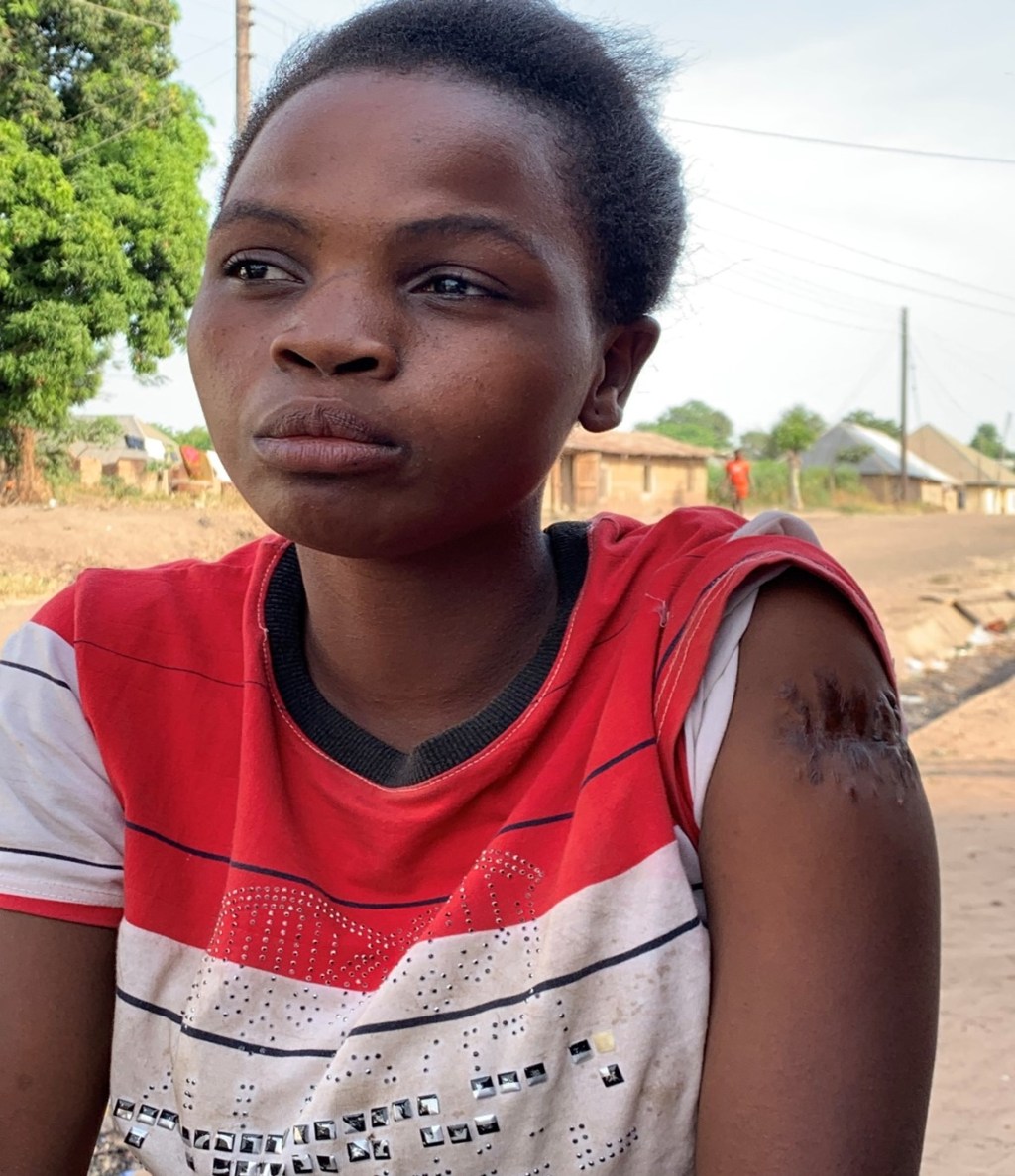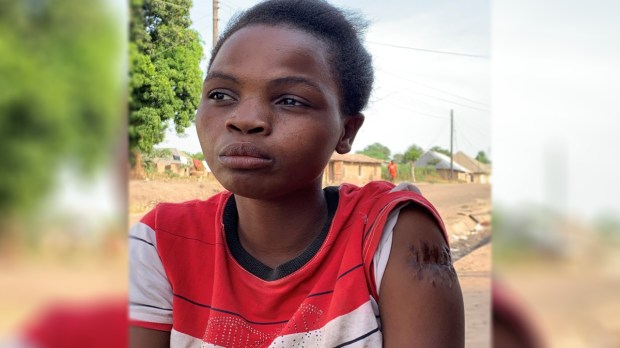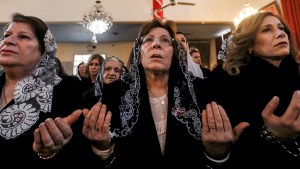On October 26, 2021, Fulani herdsmen killed the husband of 20 year-old Ember Amee. She was pregnant at the time and came home to find her husband in a pool of his own blood. And despite her pregnancy, the Fulani herdsmen attacked her, too. As a result of this violence, Ember suffers from mental health issues and is stigmatized by her community. She spoke about her experience with Patience Ibile of Aid to the Church in Need.
Can you tell us more about the day you lost your husband?
October 26, 2021 is a day I am trying to forget. That fateful day, my husband and I were farming close to our village. I was heavily pregnant then. My husband noticed I was sad and asked what the problem was. I answered that I didn’t know but that I was feeling sad and uneasy, and confused in my thoughts. I felt as if I was about to lose something dear to me. I could not understand the feeling. A few minutes later, I was thirsty and told my husband that I was going to get water. He kissed me goodbye and told me not to be away long. I replied with a smile, not knowing that that would be the last time I would hear his voice or see him.
Upon my return, I could not find my husband, but I was not worried at first. I looked around, but there was no sign of him anywhere on the farm. Then I became tense and worried; I started calling out his name repeatedly. I ran from one side of the farm to the other. Suddenly, I heard a response from the other end of the farm. To confirm it was truly a voice that I heard, I called out again and got a response again. It did not sound like my husband’s voice.
I started walking toward where the voice came from. Though I was not fully convinced it was my husband’s voice, I was determined to go and see what was happening. When I got there, I saw my husband lying on the ground, lifeless, murdered in cold blood. His corpse was surrounded by eight Fulani herdsmen.
One of the Fulani herdsmen had pretended to be my husband. He was the one who lured me into coming to where they were. It felt like my heart stopped beating. I suddenly developed cold feet and there were goosebumps all over my body. I thought of my pregnancy and cried my heart out. I was in a lot of pain. When I saw them coming toward me, I began to run, but luck was not on my side; I slipped and fell.
One of them aimed his machete at my stomach , but I quickly used my hands and head to shield my child. I felt a cut on my shoulder, and it was so painful that I couldn’t even scream. My mouth opened, but no sound came out. I used my left hand to try to stop the blood. When they saw that, one of them cut off three of my left-hand fingers.
I had never felt so miserable. The pain I felt at that moment cannot be compared to anything I’ve known. I felt another cut at the back of my head. Due to the injury, I suddenly felt dizzy. I saw one of them with a knife in his hand; he raised his arm to stab me, but I pretended to be dead. That, for sure, was my rescue. I heard one of them saying, “Se yem! Ve kype cii!” That means, “Let’s leave, they are dead already!”
After the Fulanis left, a villager, who had been watching from a hiding place, rushed me to the hospital. I can’t thank God enough for keeping my baby safe in the womb—and for sparing my life.
But today I easily forget things, and sometimes I act mad. However, I am still grateful to God for keeping me alive. I have learned to adjust and deal with this likely lifelong trauma.

Is this the first time you were confronted with Fulani violence?
This was not the first time, nor was it the last time. There have been a series of attacks on my village, and truly, I lost count of how many times we were attacked. They are still at it, with no one to stop them.
Have there been times when there was harmony between Christian farmers and Fulani herders?
Not that I know of. The relationship has been unstable since time immemorial; we have always had a cat-and-dog relationship. We Christian farmers have extended our hands in friendship to the Fulani herdsmen several times, but they keep breaking our trust. They have rejected our gesture of friendship by betraying us and killing us at any given moment. We are very tired of this.
Are you living in a camp for Internally Displaced People?
Yes, I am living in the Ortese IDP Camp in Benue State. I just moved to the camp. After the attack, I was staying in one of the neighboring villages, but recently, that community was also attacked. I was then able to go to the diocese, and they took care of me for days and later moved me to the camp. I cannot go back to my village because it is now dominated by Fulani herdsmen.
What kind of services is the Church providing?
The Church has been doing what it can. They bring us food, clothes, and toiletries, and they strengthen our faith through prayers, and they celebrate the Mass for us.
What are your prospects for the future?
I am currently learning tailoring skills and how to make beautiful dresses. I am hopeful that when I am done, I will be able to set up shop and provide for my son Myton and myself.
Do you envision a return to farming ever?
I love farming, but now that I am disabled, I am not certain I will be able to farm again. My left hand cannot function properly because of the cut I incurred in the attack.
Has your faith been a source of strength for you?
Myfaith has kept me going; it is the reason I am alive and still breathing. I am pushing on, regardless of my situation. I still trust God, regardless of what I have been through, and I am hoping for the best soon.
Can you contemplate forgiving your attackers?
Yes, I will forgive them. As Christians, we are taught to forgive those who trespass against us so that we may also be forgiven. So, I have forgiven them for all the pain they have inflicted on me.
Aid to the Church in Need supports the work of the Diocese of Makurdi, Nigeria, as it comes to the aid of Internally Displaced People in 14 camps and in 13 hosting communities.
Besides providing pastoral care, the local Church provides trauma counseling, scholarships so that children can continue their education, as well as food and other forms of humanitarian aid. In 2022, Fulani herdsmen attacked 93 villages, killing 325 farmers.



